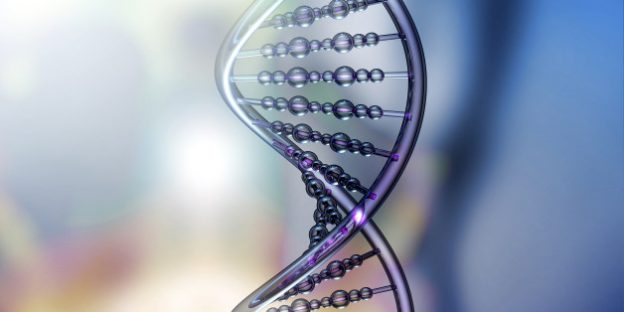Breakthrough in genetic genealogy
October 13, 2018 | Expert Insights

Progress in genetic genealogy seen soon able to ID most Americans via a family member’s DNA.
Scientists issue a soft warning about the potential misuse of the tool by hackers for a Facebook-type scandal but with graver implications for privacy.
Background
Deoxyribonucleic acid (DNA) is a molecule composed of two chains (made of nucleotides) that coil around each other to form a double helix carrying genetic instructions that are used in the growth, development, functioning and reproduction of all known living organisms and many viruses.
DNA stores biological information. The DNA backbone is resistant to cleavage, and both strands of the double-stranded structure store the same biological information. This information is replicated as and when the two strands separate. A large part of DNA (more than 98% for humans) is non-coding, meaning that these sections do not serve as patterns for protein sequences.
Genealogy, also known as family history, is the study of families and the tracing of their lineages and history. Genealogists use oral interviews, historical records, genetic analysis, and other records to obtain information about a family and to demonstrate kinship and pedigrees of its members.
Analysis
The remarkable technique used to identify the suspected “Golden State Killer” four decades after his crimes — genetic genealogy — could be used to identify half of all Americans from relatives’ DNA samples, a new study says.
And just a few years from now, the process could be used to track nearly all Americans of European descent by making DNA matches with distant relatives, the authors of the study predicted.
The research, published Thursday in the U.S. journal Science, could have wide-ranging privacy implications — if someone uses a consumer website to trace his ancestry, should that information be used to identify his kin, possibly in a criminal case?
A person and his or her third cousin have the same great-great-grandparents. With a second cousin, one shares great-grandparents. The closer you are with a relative, the more similar your genetic make-up is. Even in the case of third cousins, the human genome — or the information encoded in a person’s DNA — is very much alike. When police find a DNA sample that does not match anyone in their database, a criminal investigation can come to a dead end.
According to the company’s director of bioinformatics, Ellen McRae Greytak, 60% of those samples had “matches” on GEDMatch that were worth pursuing. Parabon’s researchers work assiduously using publicly available data (genealogy websites, Facebook accounts, LinkedIn profiles, obituaries, etc) to rebuild family trees and identify possible suspects.
Beyond the 13 cases that led to arrests, “we have several other ones where we’ve given them a lead of a single individual,” Greytak told AFP. For the study published on Thursday, researchers analysed the DNA data of the 1.28 million people in the MyHeritage database.
That means that with samples from only two per cent of the total U.S. population, all could be identified.
One day, police could order the sites to open up their databases. So far, Ancestry and 23andMe told AFP they have yet to receive an injunction. The threat of such action in the future, or the illegal use of another person’s DNA, worries privacy advocates.
Natalie Ram, a professor at the University of Baltimore School of Law, says she hopes that the new research will help raise awareness about the legal void that allowed police to use GEDMatch to find DeAngelo. Ram says genetic data should be constitutionally protected from illegal search and seizure much like a person’s email or telephone data.
Erlich, the author of the study, says he plans to get ahead of a potential crisis, to make sure that genetic genealogy does not become the focus of a leak scandal on par with the data breaches suffered by large companies such as Facebook. He proposes that each sample be sealed with some sort of encrypted signature that would prevent unauthorized usage.
Assessment
Our assessment is that this new tool could be used to devastating effect if not regulated by a comprehensive set of rules and safeguarded by modern security systems. Privacy in the digital age is already a contentious issue between society and scientists, and this genealogy tool has the power to disrupt societal functions if misused. We believe that this tool could be used for the collective good of the society by resolving long-standing family disputes, cases of hereditary claims etc. We also feel that there is a greater need to protect an individual’s privacy now.








Comments